Biotechnology Applications and Field Analysis
Monitoring of soil or water is not the only use for devices such as the Mini Gas Chromatograph (GC) and LabNavigator. In the field or laboratory, these tools enable biotechnology researchers and staff to directly measure and track important parameters.
Key applications include the following:
- observing the cultural media's quality.
- conducting measurements of conductivity, turbidity, pH, and other physico-chemical parameters.
- Quick biological solution examination to find alterations or potential contamination.
Decisions may be made instantly thanks to real-time measurements, which is crucial for biotechnological initiatives that need reliable and ideal experimental settings.
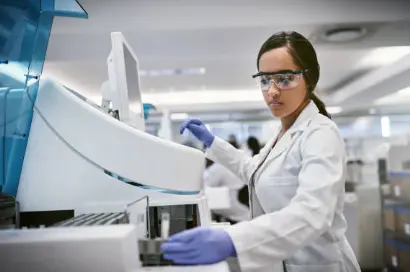
Multi-Sensor Integration and Flexibility
The LabNavigator supports up to six simultaneous sensor inputs, giving users the ability to:
- Monitor several chemical and biological factors simultaneously.
- With an acquisition rate of 100,000 samples per second, swiftly gather huge datasets.
- To keep track of experiments over time, export and examine data on a computer.
This adaptability enables the use of a broad range of biological fluids, culture medium, and biomaterials while preserving precise and trustworthy measurements.
Benefits for Biotech Laboratories and Field Work
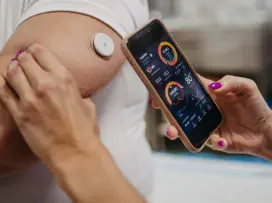
Speed
obtain results immediately without waiting for a central laboratory .
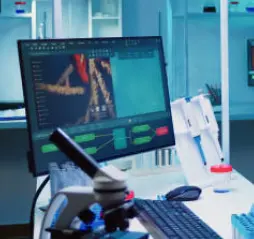
Versatility
compatible with a wide range of technologies, including spectrophotometry and electrochemistry.
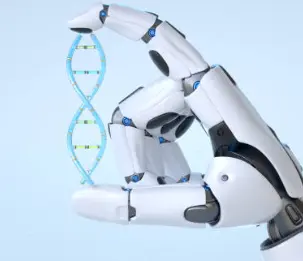
Portability
devices made for field conditions that are strong and lightweight.
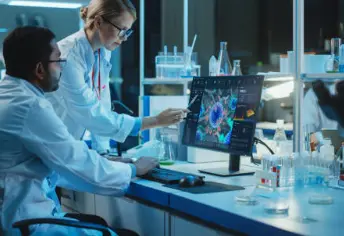
Cost-effectiveness
In contrast to conventional laboratory setups, instruments are readily available.
=> Biotechnology laboratories, startups, and research centers can enhance industrial and experimental operations while cutting down on analysis time and expense thanks to these benefits.
Towards Connected Biotechnology
In conjunction with portable spectrophotometers or fluorometers, the LabNavigator allows researchers to view results directly on a color display. The need for large laboratory equipment is decreased by this integration, which also makes field analysis more integrated and intuitive.
Portable analytical tools like these are crucial for modern biotechnology, enabling:
- Cell culture optimization – monitoring environmental conditions and growth parameters in real time.
- Quality control of reagents and media – ensuring experimental reliability without delays.
- Field-based experiments – tracking changes in biological samples in their native environment.
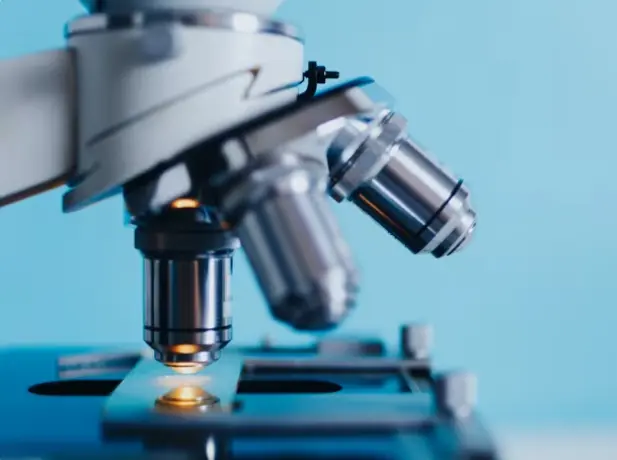
Supporting Real-Time Biotechnological Decisions
Multi-sensor functionality, real-time data capture, and portability combine to enable:
- In experiments, quick identification of chemical or environmental changes.
- monitoring chemical processes or microbiological cultures effectively.
- On-the-spot, precise confirmation of experimental conditions.
🔬 Researchers can concentrate on exploration and discovery instead of waiting for laboratory analysis thanks to this strategy.
Integration with Existing Biotech Instruments
The LabNavigator is designed to interface seamlessly with existing biotechnology instruments, including:
- USB spectrophotometers for measuring fluorescence and absorbance.
- USB spectrophotometers for measuring fluorescence and absorbance.
- Electrochemical sensors with many channels.
=> Researchers can power and control external devices directly from the LabNavigator, see the results instantly on its color screen, and export data for further analysis, creating a fully integrated and portable biotech workflow.
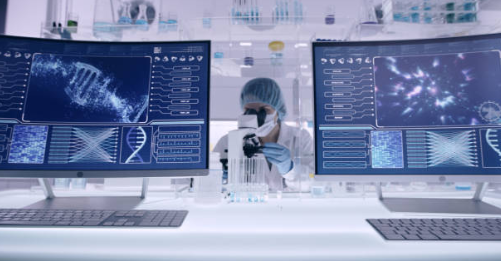
Driving Innovation in Biotech Research
With portable, versatile instruments like the LabNavigator and Mini GC, biotechnology research can be conducted anywhere, anytime, without sacrificing data quality or analytical capability.
These tools provide:
- Precision and reliability comparable to laboratory systems.
- Flexibility to adapt to different research conditions.
- Accessibility for small labs, startups, and field-based studies.
By bridging the gap between portable field measurement and laboratory-grade analysis, Forston Labs' tools enable biotech professionals to improve workflow efficiency, obtain faster findings, and improve experiment repeatability.